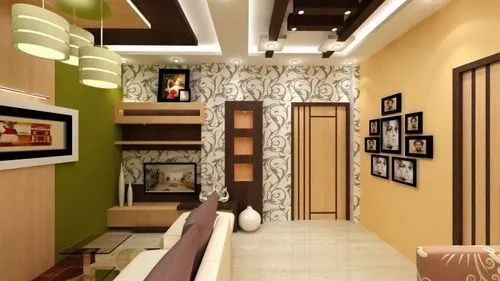
When it comes to creating a harmonious and aesthetically pleasing living or working environment, interior design and decoration play pivotal roles. These artful practices not only enhance the visual appeal of spaces but also contribute to the overall well-being and functionality of the inhabitants. In this comprehensive guide, we will delve into the intricacies of interior design and decoration, exploring the what, how, and why behind these creative processes.
What is Interior Design?
Interior design is the art and science of enhancing the interior of a space to create a healthier and more aesthetically pleasing environment for the people using it. It involves a combination of artistic flair, architectural knowledge, and practical considerations to transform a blank canvas into a well-designed and functional space.
How Does Interior Design Differ from Decoration?
While interior design and decoration are often used interchangeably, they have distinct differences. Interior design is a more comprehensive process that involves planning the layout, optimizing functionality, and considering spatial arrangements. On the other hand, interior decoration focuses primarily on enhancing the visual appeal through the selection of color schemes, furnishings, and decorative elements.
How to Begin Your Interior Design Journey:
Assessing Your Space:Start by evaluating the space you want to design or decorate. Consider the size, layout, and existing architectural elements 裝修. Identify the purpose of the space and the needs of its users.
Defining Your Style:Explore different interior design styles to discover what resonates with you. Whether it’s contemporary, minimalist, traditional, or eclectic, understanding your preferred style will guide your design decisions.
Creating a Budget:Establish a realistic budget for your project. This will help you prioritize design elements, select appropriate materials, and avoid overspending.
How Can You Incorporate Sustainability into Interior Design?
Choose Sustainable Materials:Opt for eco-friendly and sustainable materials that have minimal environmental impact. This includes using recycled or upcycled furniture, energy-efficient lighting, and low-VOC (volatile organic compound) paints.
Energy-Efficient Design:Integrate energy-efficient design principles, such as maximizing natural light, using thermal mass, and selecting energy-efficient appliances. This not only benefits the environment but also reduces long-term energy costs.
What are the Latest Trends in Interior Design?
Biophilic Design:Embrace the connection between nature and design by incorporating natural elements such as plants, natural light, and sustainable materials.
Bold Colors and Patterns:Experiment with vibrant colors and bold patterns to add personality and drama to your space. This trend allows for creative expression and can transform a room into a lively and dynamic environment.
How Do Lighting and Color Choices Impact Interior Design?
The Power of Lighting:Understand the importance of lighting in interior design. Proper lighting can enhance the mood, highlight architectural features, and make a space feel more inviting. Incorporate a mix of ambient, task, and accent lighting for a well-balanced design.
Color Psychology:Explore the psychological effects of colors and how they can influence emotions and behavior. Warm colors like red and orange evoke energy and excitement, while cool colors like blue and green create a calming and serene atmosphere.
In Conclusion:
Interior design and decoration are dynamic processes that go beyond mere aesthetics. They have the potential to transform spaces into functional, visually appealing, and emotionally satisfying environments. By understanding the principles, incorporating sustainable practices, and staying abreast of the latest trends, you can embark on a journey to create a space that truly reflects your style and enhances your quality of life.